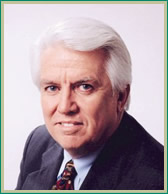
Caution When Opening (or Closing) Your Mind
|
 |
|
| Dr. Paul D. Houston Founding Partner |
A few months ago, when I was with Steve, he suggested that I do something that I didn’t want to do at the time and I told him so. He laughed and pointed out that our current topic in the Lens would be “openness” and that maybe I should work on my own openness a bit. I countered that sometimes you have to be careful not to have too open a mind or you risk having your brain fall out. Therein lies the dilemma of openness.
It is a clear spiritual principle to have a sense of openness to others, to new ideas, and to accepting things you might rather not accept. Our world is filled with examples of a lack of openness and where that can lead us. We see reluctance to be open to those who are different from us. Really, isn’t a lot of the political folderol about Barack Obama about the fact that he has a strange name, an exotic heritage and upbringing, and a color that many Americans are not accustomed to accepting or being open toward—especially when it is the President. “Of course he must have been born somewhere else; he is so different from us.”
We see a lack of openness in religious conflicts, both between religions and among religions. Wars have been fought between major religions. But we have also seen death and destruction between various factions of the same religion. (The conflicts between Shia and Sunni come to mind.) Lately there is a major uproar within the evangelical community over a book written by a popular minister, Rob Bell, called Love Wins, which suggests that the accepted wisdom of heaven and hell may not be totally the way things really are. The fact that you can have major conflict, and even wars, over ideas that cannot possibly be proven says a lot for our problems with openness.
But we can get crossways over things that are more easily proven than whether heaven and hell exist. The hoo-ha over “global warming” is a case in point. There is broad and deep factual evidence that the climate of the earth is changing, and also pretty good evidence that some of this change, at least, is due to the actions of humankind. Yet there are whole rafts of people who just don’t buy it, and they go to great lengths to pooh-pooh it. (Come to think of it, it is probably good they have a raft, what with rising oceans and the like.) While our belief about heaven and hell may have a lot to do with how we spend eternity (or not), the global weirdness of extreme hot and cold, and violent weather patterns, have a lot to do with how our time on earth will play out. Openness is about the sweet by-and-by, but it also is about the not-so-sweet here and now.
The current debates in Washington over deficits and the budget are ideal examples of what happens when minds are closed. These debates have to do with strongly held competing visions of how humanity should behave economically. Are we to build off our own efforts, or are we our brother’s keepers? This has a lot to do with tax policy and solutions that affect future generations. The bottom line on all this is that being open to looking at other points of view and being willing to modify your own strongly held beliefs in the face of new information is not just a good spiritual practice—it is good life practice, because it can mean life or death, or a great deal about the quality of life we experience.
But what about my response to Steve’s suggestion and my unwillingness to show openness to it? Is there something to be said for knowing what you want and sticking with it? Will having a more closed mind prevent your brain from falling out? I am not advocating being closed, but I think that while the opposite of “open” is “closed” there is a whole range between these two extremes that needs exploration. Simply being open to everything means you are not doing the hard work of making reasoned judgments. As Kenny Rogers’ old song reminds us, you have to know when to hold them and know when to fold them (not to mention when to walk away and when to run). Making reasoned judgments can save you time, money, and pain. You certainly shouldn’t do whatever someone suggests, even at the expense of seeming less than open. And you certainly shouldn’t even do everything your inner voices tell you to do. I have gotten into a lot of trouble over the years being open to those little guys who sit on my shoulder and direct my traffic. Sometimes they don’t have my best interests in mind. Doing what feels good now, or is fun now, may not be the best thing. Delayed or deferred gratification might be what is best for you and for others. How does openness fit with all of that?
I guess my point is that sometimes the best path to openness is to be a little closed. I think the rule you might want to fall back on is one that Steve and I have talked about a number of times. The best measure is to try to see if what you are doing (or thinking) serves your interest to the exclusion of others. Or does it serve others? When it is of service to others, being open is always going to be the best policy.
View Paul Houston's Political Blog
![]()
Center for Empowered Leadership ®
Email: info@cfel.org
Phone: 1.609.259.7911
